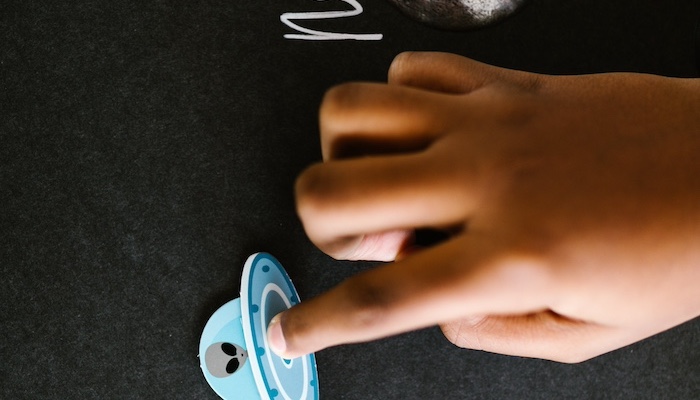
In children, arthritis does not typically occur due to wear and tear or overuse of the joints, as it can in adults. More typical in children is inflammatory arthritis, in which the body’s immune system causes inflammation in a joint or multiple joints. Inflamed joints may be painful, stiff, or swollen.
Inflammatory arthritis in children, known as juvenile idiopathic arthritis (JIA), occurs more frequently than you might think and is estimated to affect nearly 300,000 children in the United States, according to the Arthritis Foundation. JIA can occur from toddlerhood through adolescence. Pediatric rheumatologists, like those at HSS, specialize in the diagnosis of JIA and can help affected children and their families manage the disease. It’s important to recognize and treat JIA as soon as possible, and to establish care with the correct treatment team, to ensure that every child has the best possible outcome.
What Is Arthritis And How Does It Affect Kids?
Arthritis is pain, swelling, and stiffness in a joint or joint. Children may have visible joint swelling, and may also experience stiffness of the joints, particularly in the morning. If the joints in their legs or feet are involved, they may have a limp.
JIA can limit a child’s mobility. Without proper treatment, it may cause joint damage and growth abnormalities. This is why it’s important to diagnose and treat JIA promptly.
How Is Arthritis In Kids Diagnosed?
Generally, children are first evaluated by their pediatrician or a pediatric orthopedist for things like injury or Lyme disease. If a physician is concerned that a child may have juvenile arthritis, they will often refer the patient to a pediatric rheumatologist for evaluation.
JIA is a clinical diagnosis, so there isn’t a single test to confirm it. While some children may have positive antibody tests, these do not necessarily mean that they have JIA. It is important to note that juvenile arthritis can also be present in children with normal bloodwork. Evaluation by a pediatric rheumatologist can help to confirm the diagnosis of juvenile arthritis.
What Types Of Arthritis Are Common In Kids?
There are several different types of juvenile arthritis. These may involve a few joints or many joints, depending on the subtype.
The most common type of JIA involves the larger joints of the lower extremities and is known as oligoarticular JIA. This means that few joints are affected. Polyarticular JIA, in which children have multiple joints affected, including small joints, can be seen as well.
A less-common type called systemic onset JIA occurs along with fever, rash, and elevated inflammatory markers in the blood.
Other types of juvenile arthritis can be associated with psoriasis, which is a type of skin disorder that can also involve the nails and inflammatory bowel disease.
How Is Arthritis In Kids Treated?
A child’s care team may include a pediatric rheumatologist and rehabilitation specialists such as physical and occupational therapists. Children with JIA will also be referred to a pediatric ophthalmologist. These children need to have their eyes regularly screened for a particular type of inflammation that can occur in the eyes called uveitis.
We have many effective treatments available for children with JIA depending upon the type of arthritis and the symptoms the child is experiencing. The treatments can include nonsteroidal anti-inflammatory medicines (similar to ibuprofen), intra-articular steroid injections, antirheumatic drugs, or biologic agents, depending on the child’s individual needs.
After evaluating the child’s response to treatment, the rheumatologist, care team, and family will discuss the best treatment plan.
Can Kids Outgrow Juvenile Arthritis?
Some children can outgrow their childhood arthritis, but other children will continue to have ongoing active arthritis into adulthood. These children will continue to be cared for by their pediatric rheumatologist and the rest of their treatment team.
How Does Childhood Arthritis Differ From Adult Arthritis?
Childhood arthritis is generally inflammatory arthritis, which means the body’s immune system is causing inflammation in the joints. Adults can also develop inflammatory arthritis. Children don’t typically develop the type of osteoarthritis many adults will develop over time.
What Should Parents Do If They Think Their Child Might Have Arthritis?
If you’re concerned that your child appears to have joint pain, swelling, stiffness, or a limp, they should be evaluated by your pediatrician, who will determine your next steps and can advise you as to whether you should see a pediatric rheumatologist.
With prompt recognition and treatment, children with JIA can do very well. Our main goal is to keep the disease under the best possible control to allow children to participate in school and any activities, sports, or hobbies that they enjoy.
Precision Pain Care and Rehabilitation has two convenient locations in Richmond Hill – Queens, and New Hyde Park – Long Island. Call the Queens office at (718) 215-1888 or (516) 419-4480 for the Long Island office to arrange an appointment with our Interventional Pain Management Specialists, Dr. Jeffrey Chacko or Dr. Sonny Ahluwalia.













